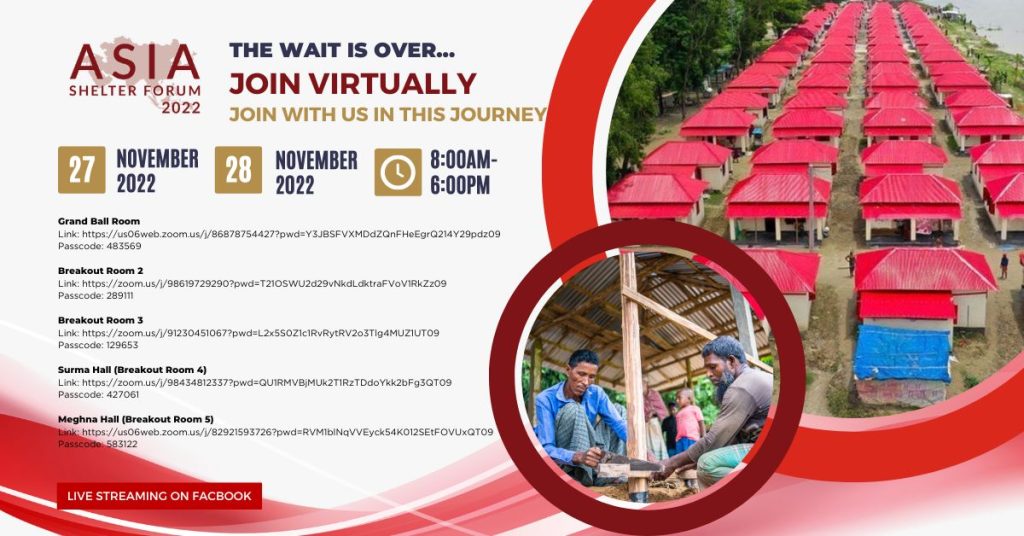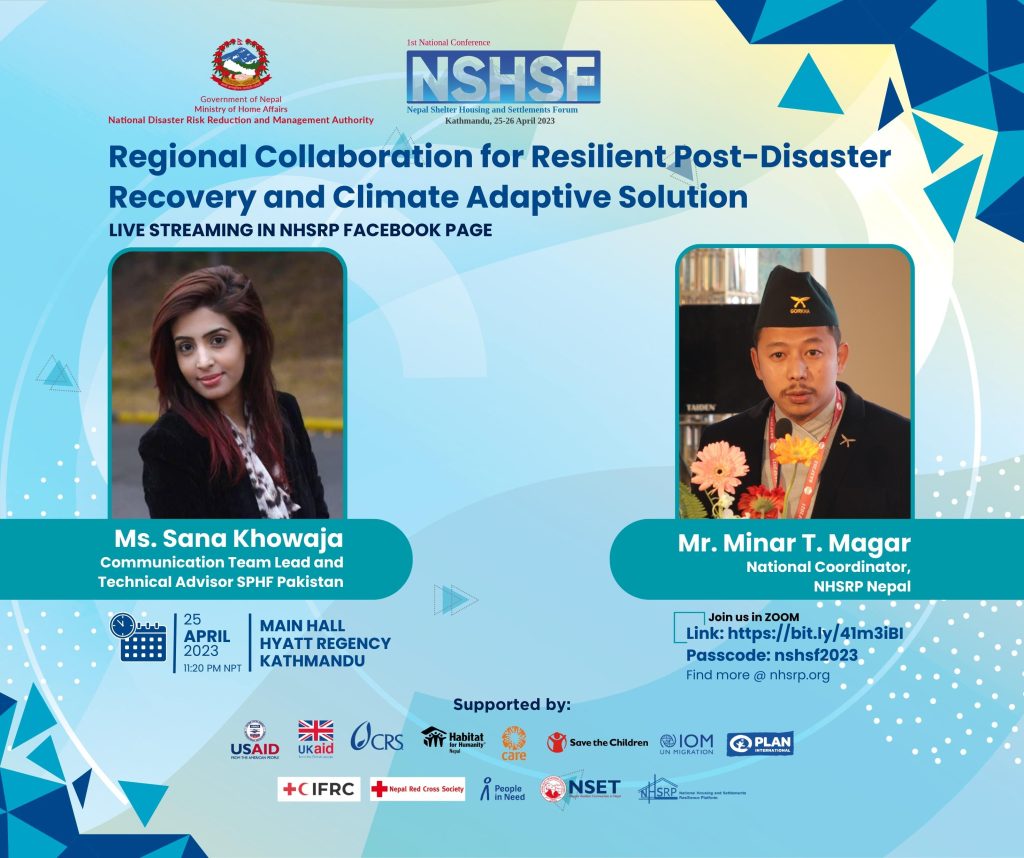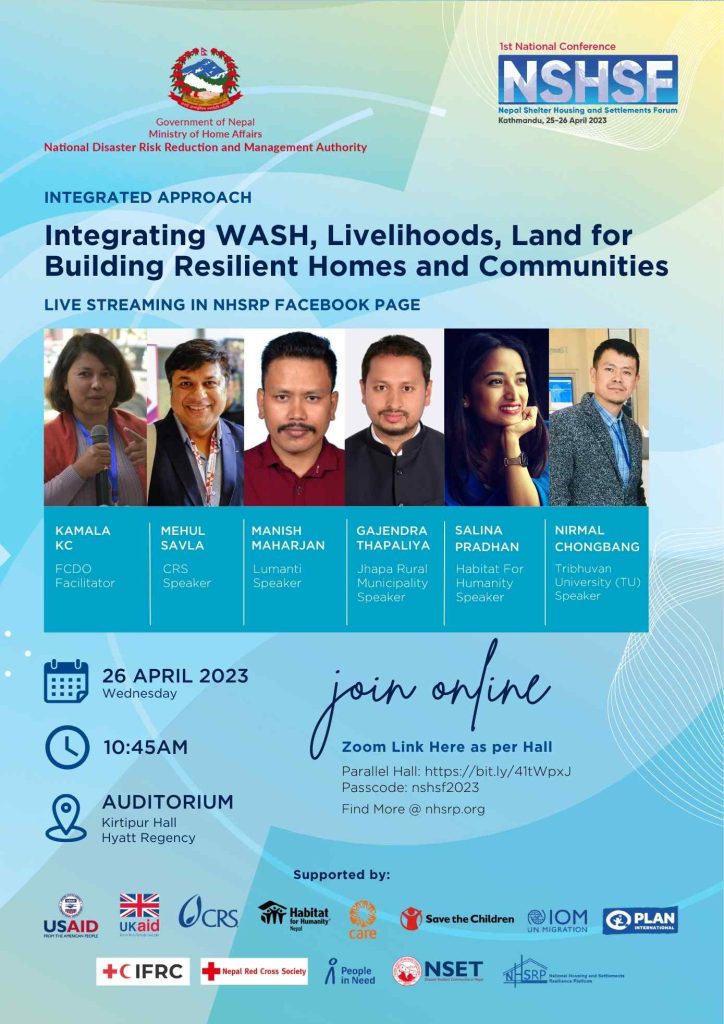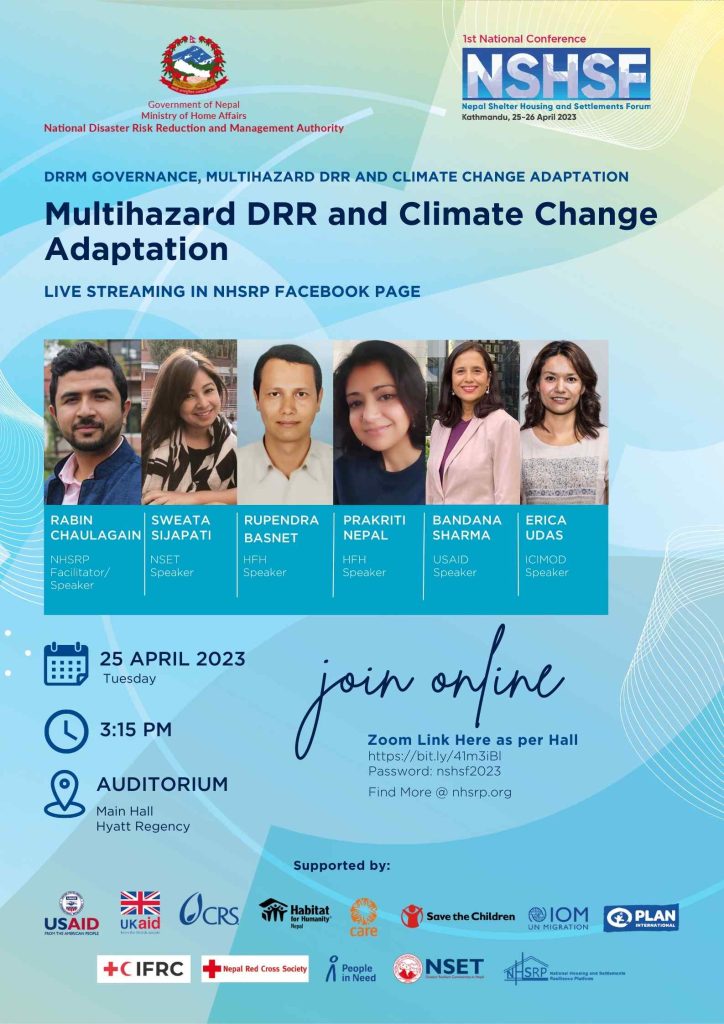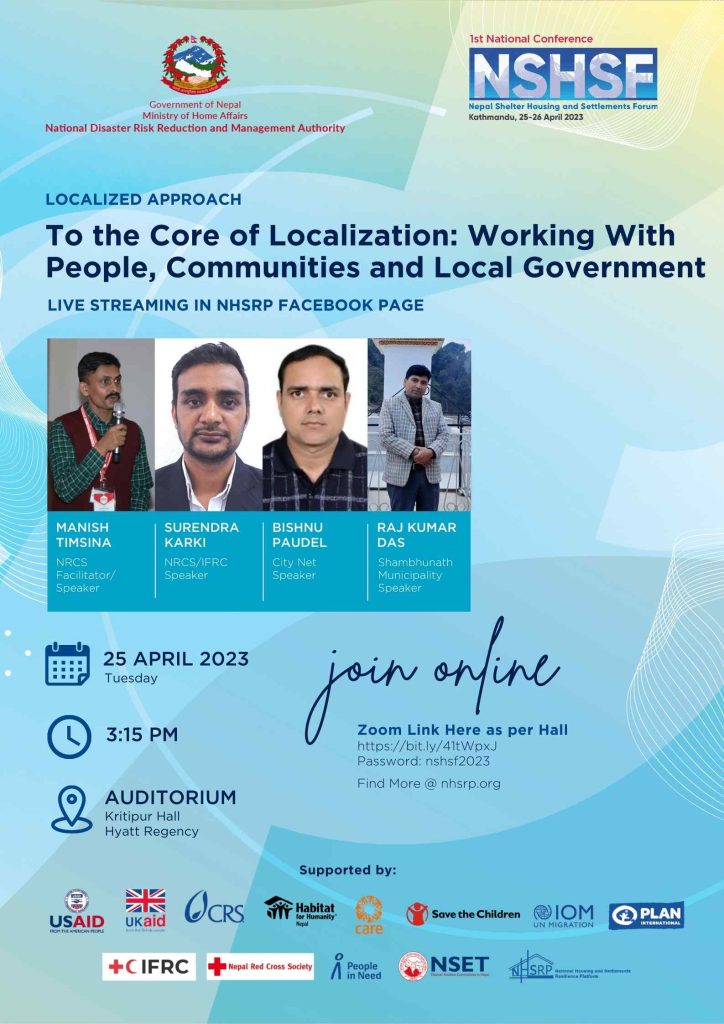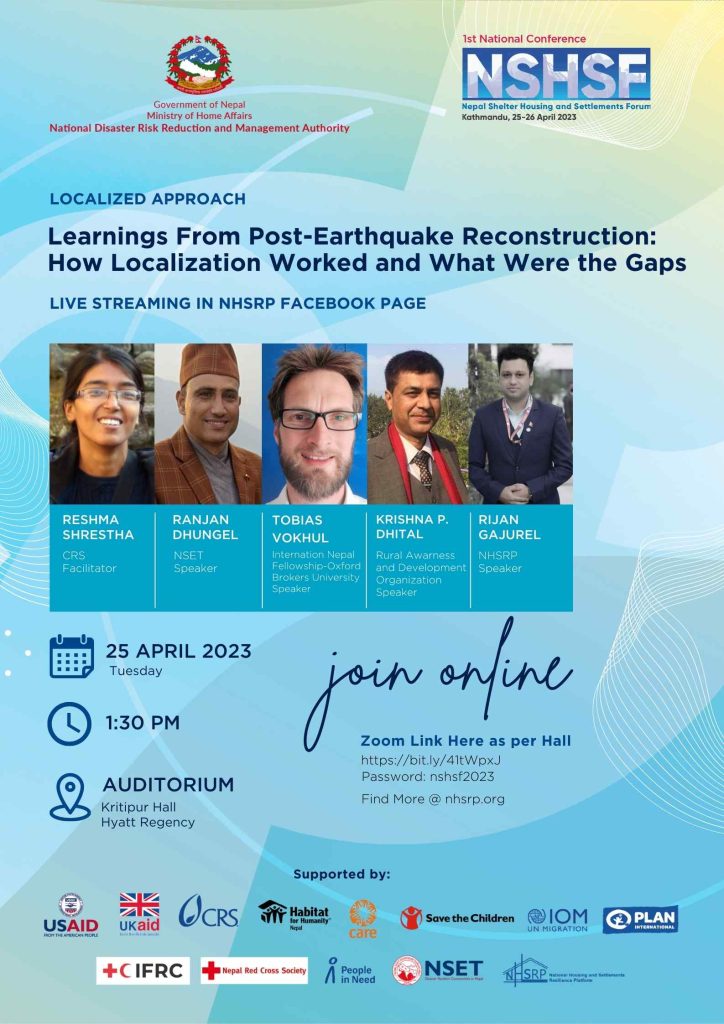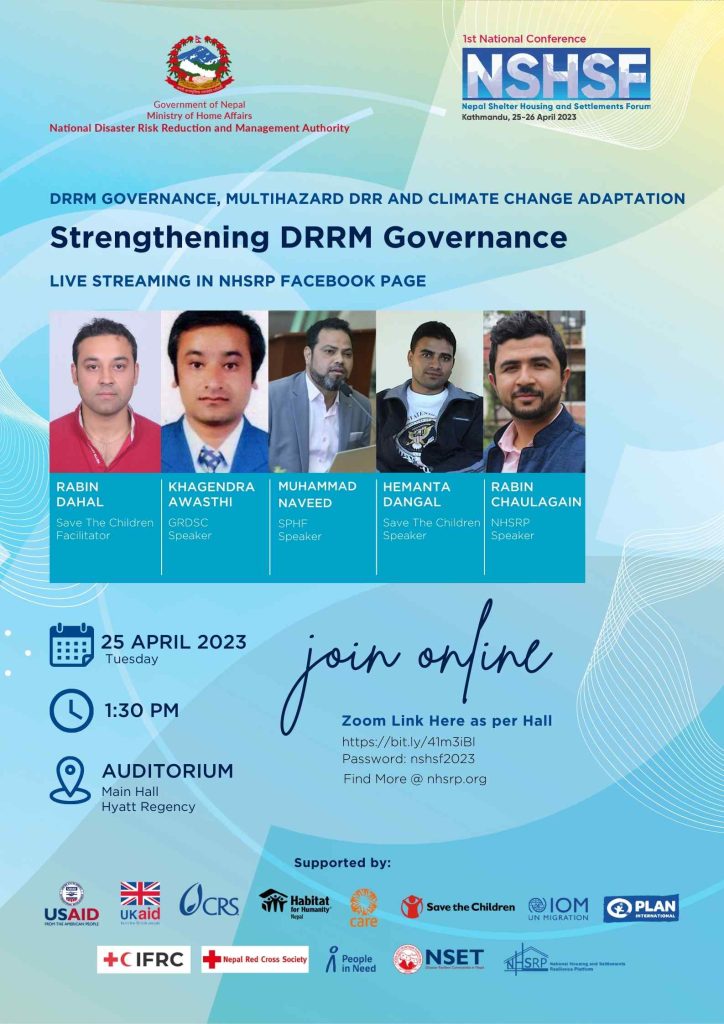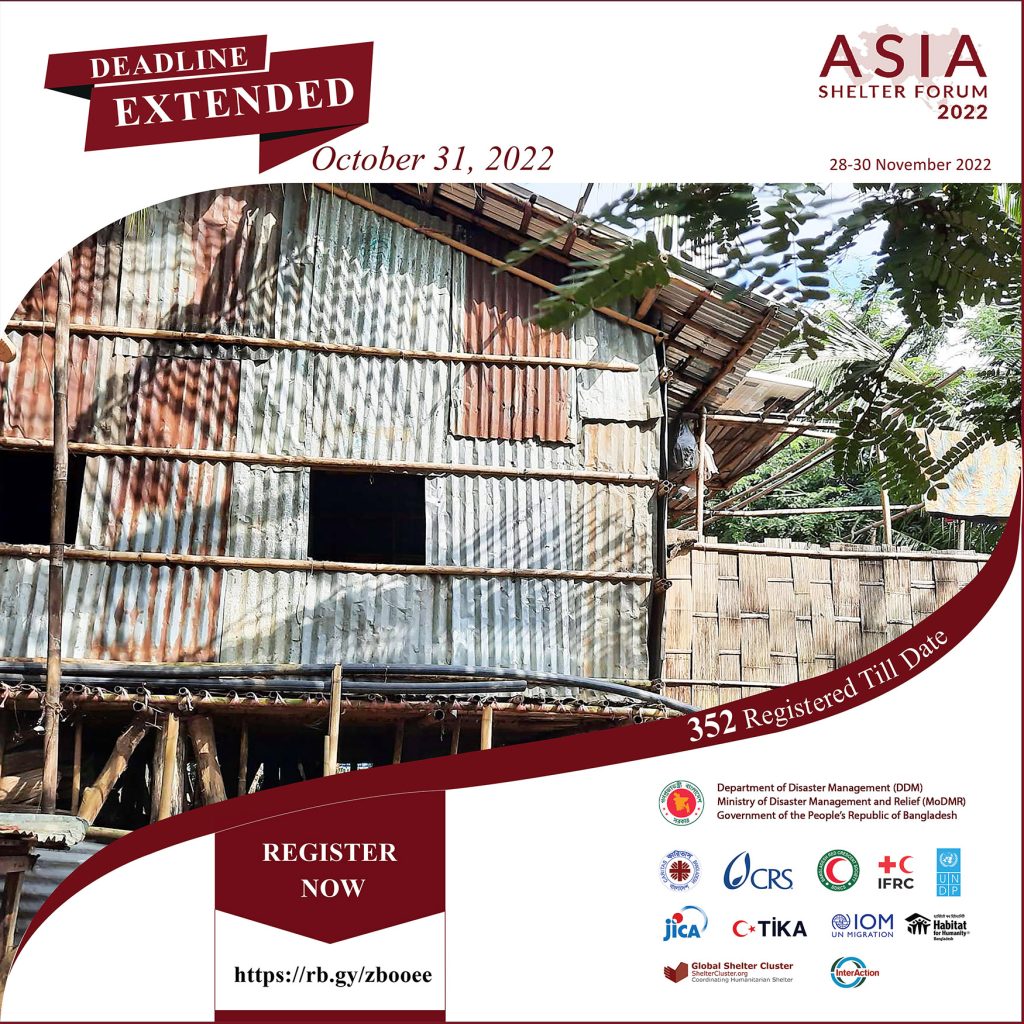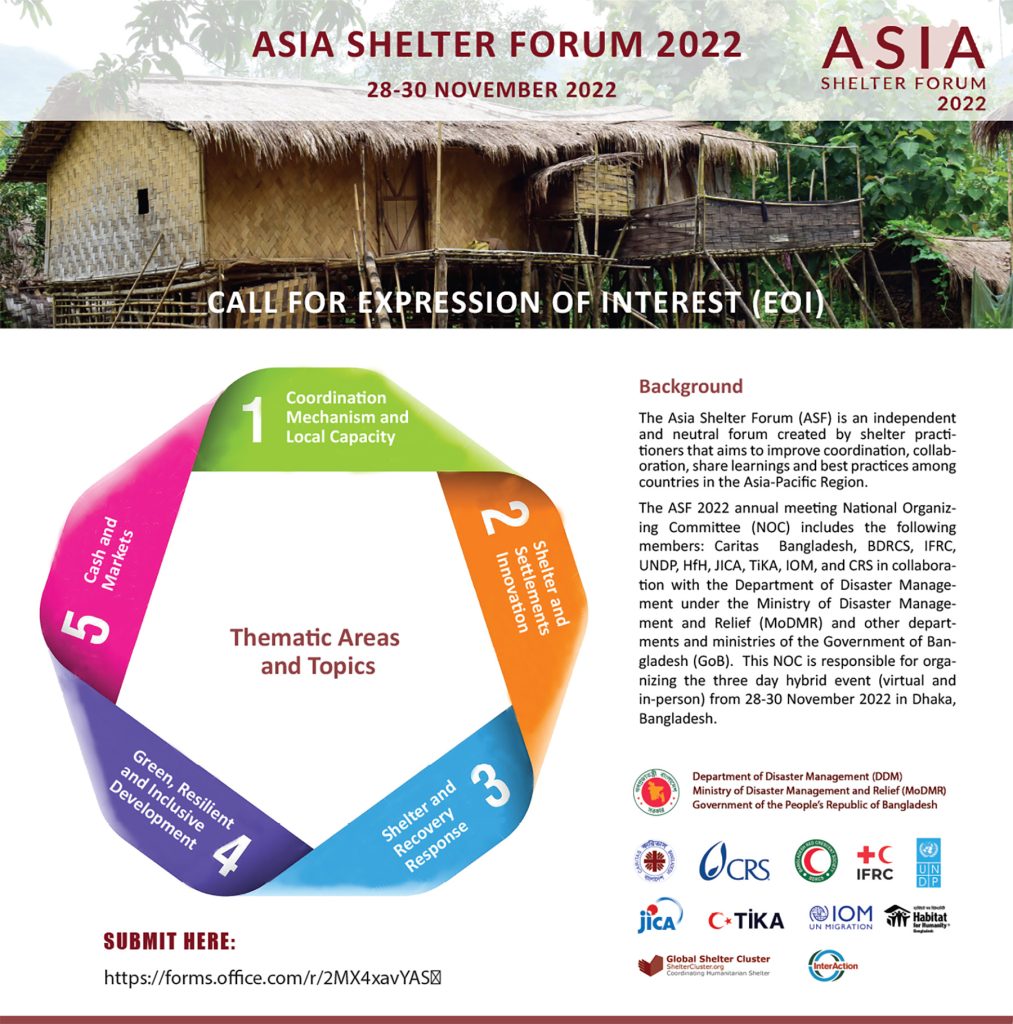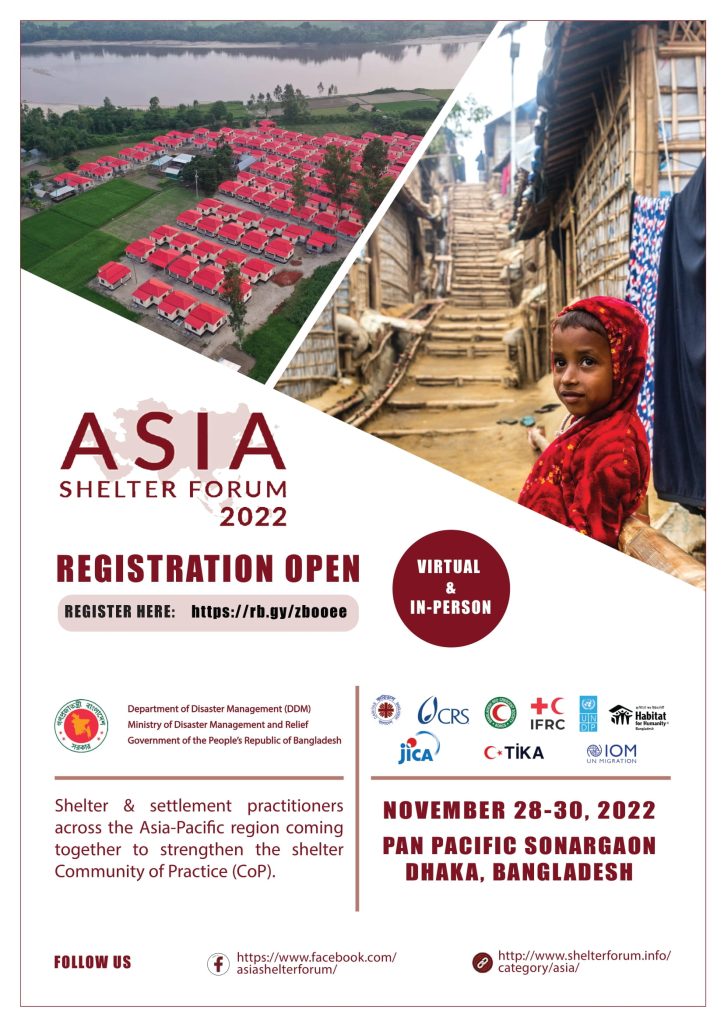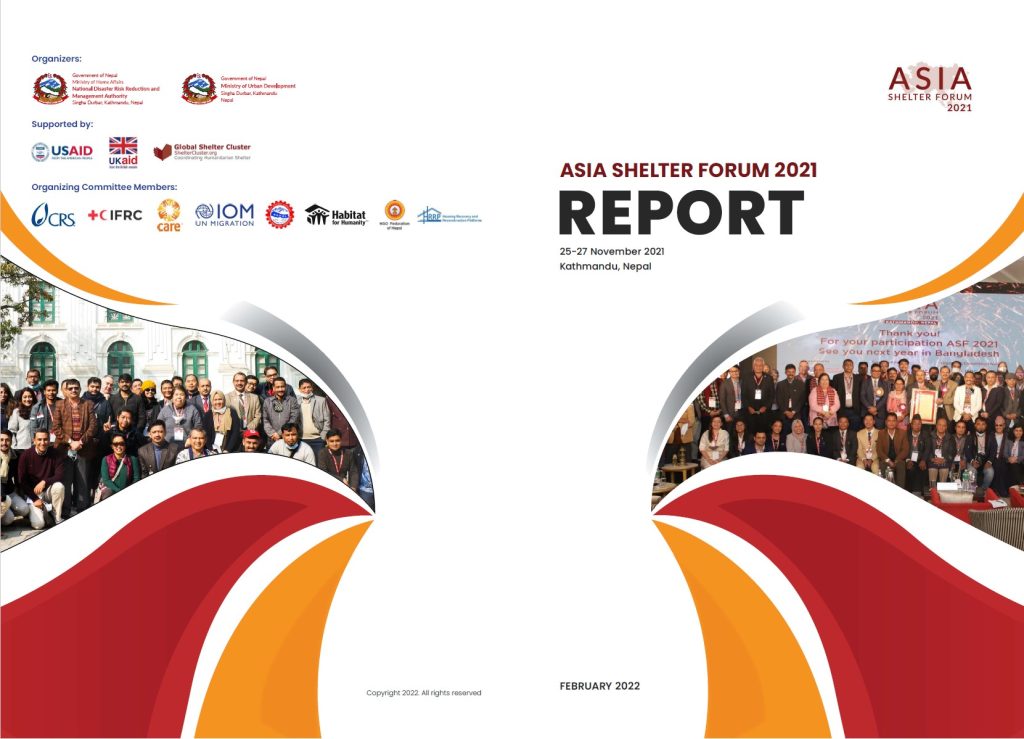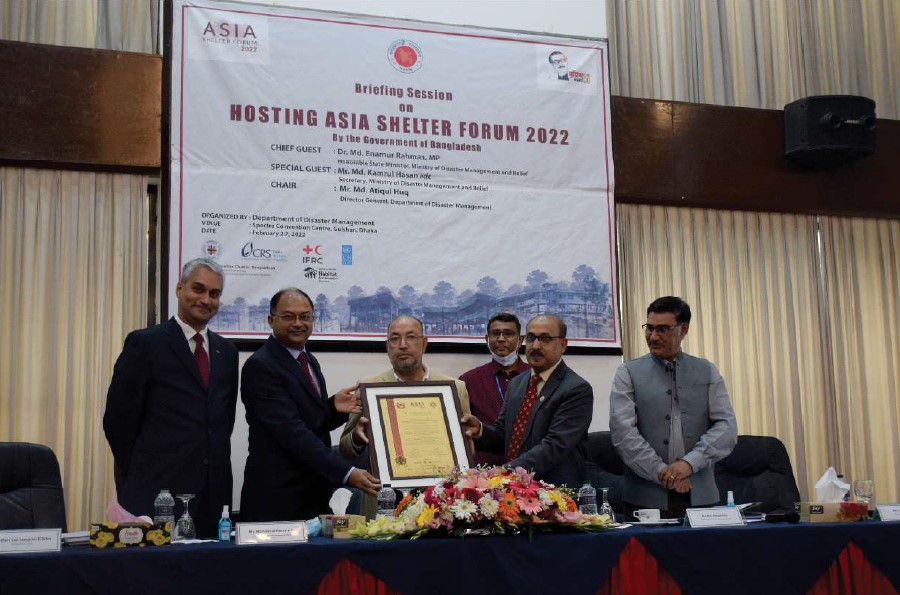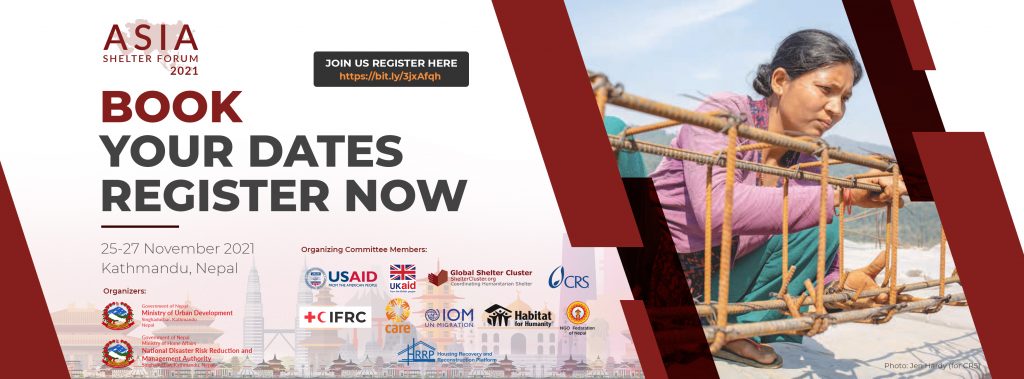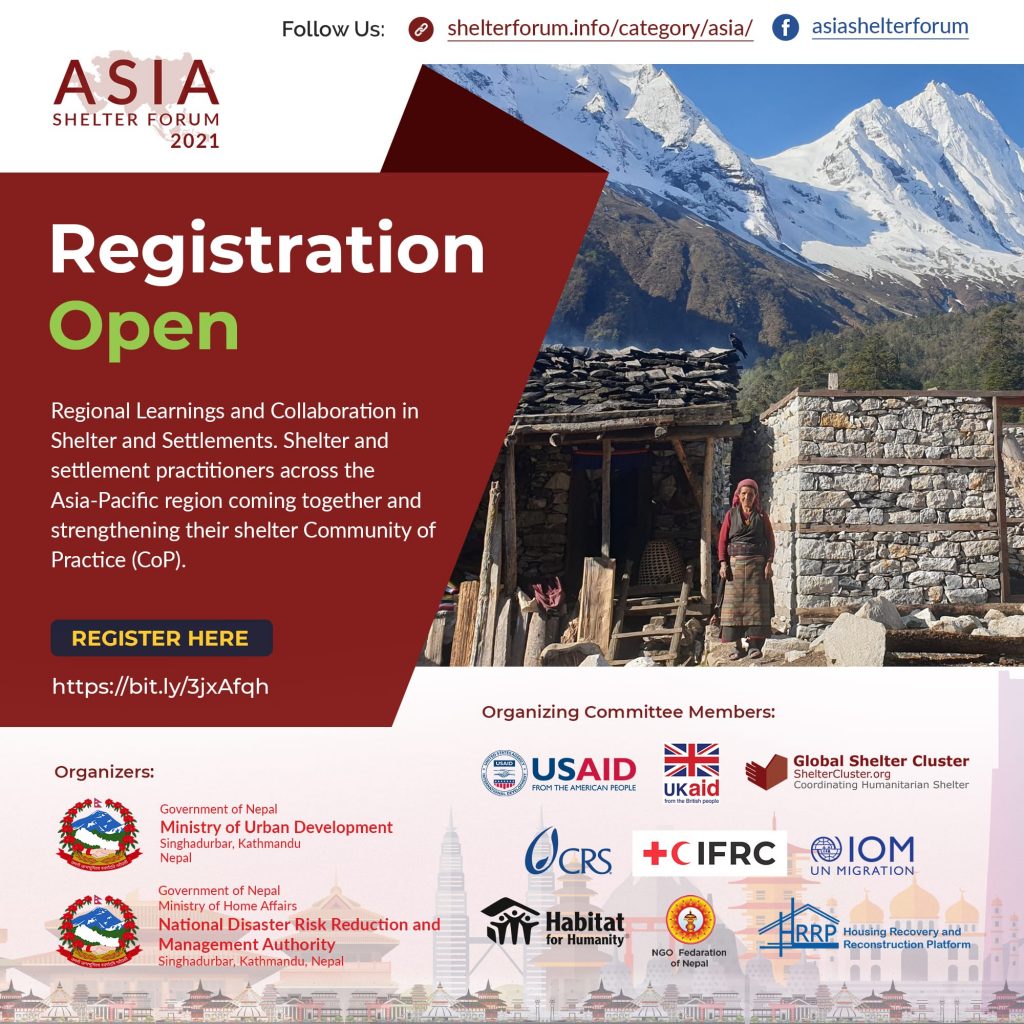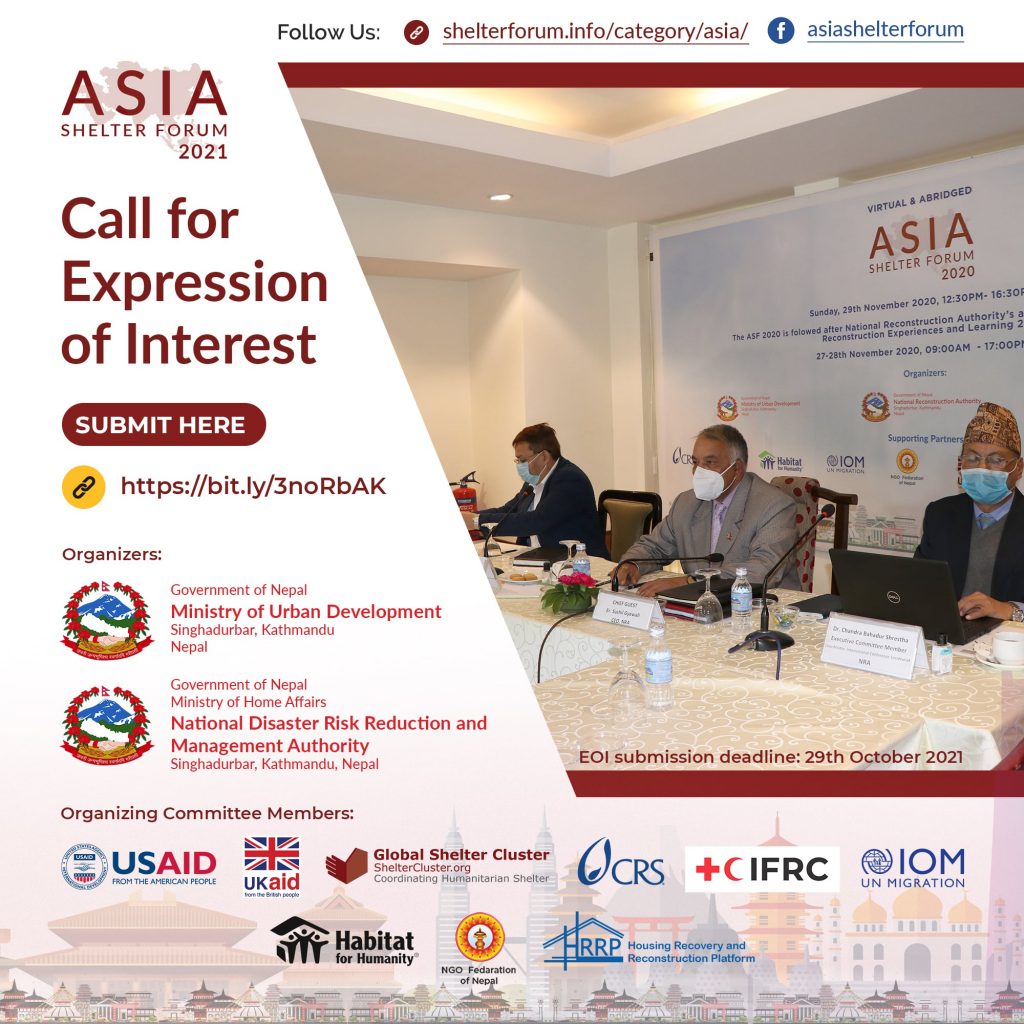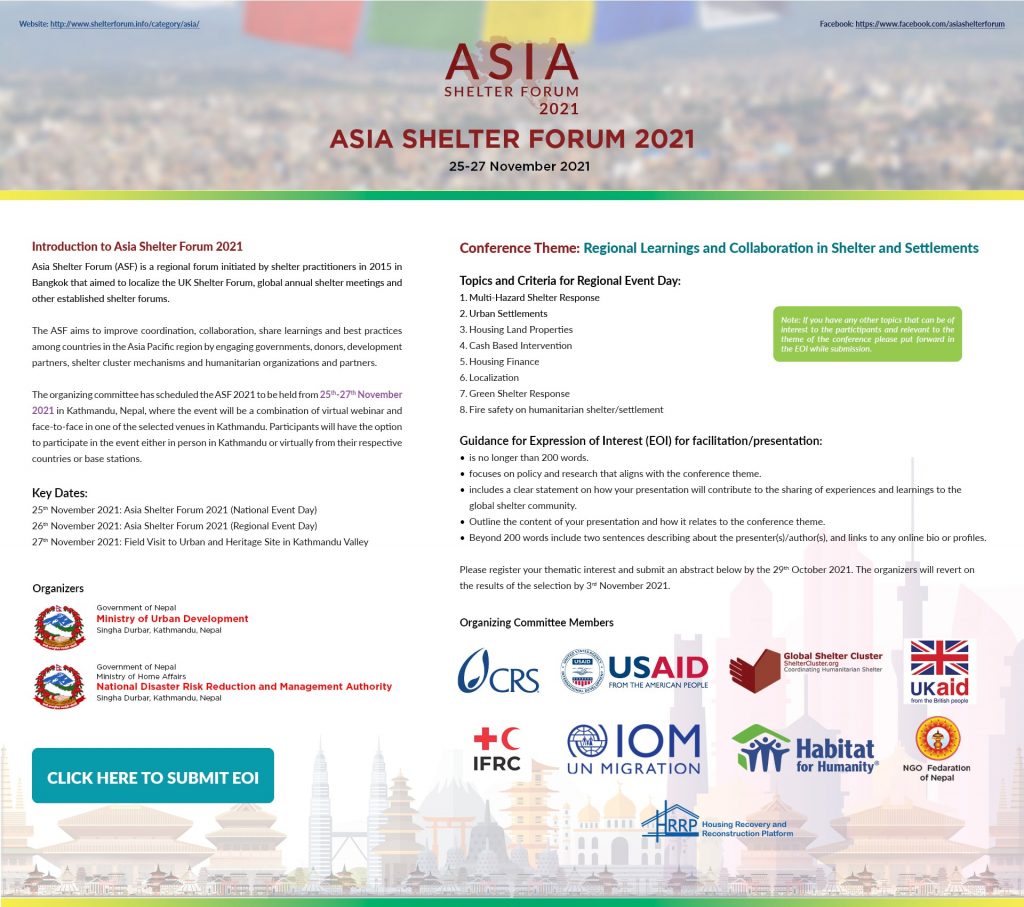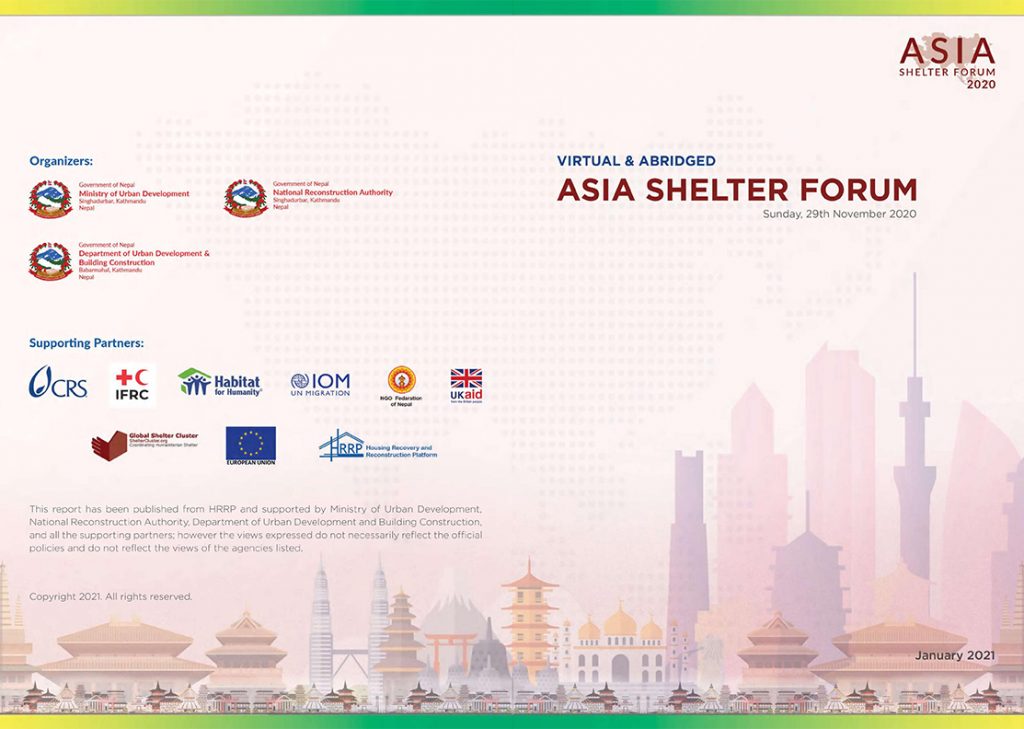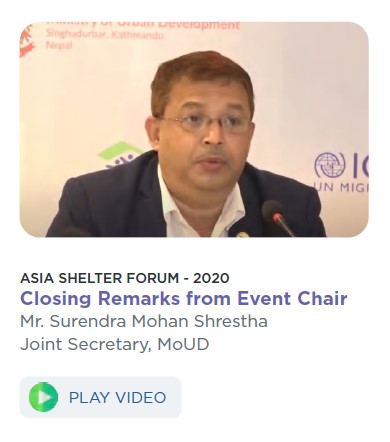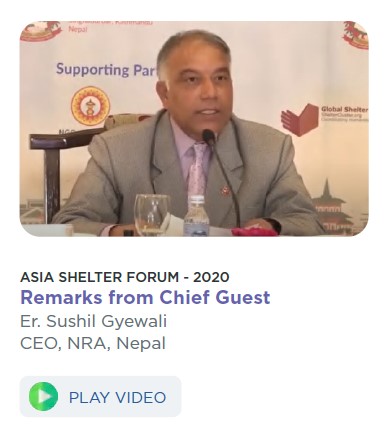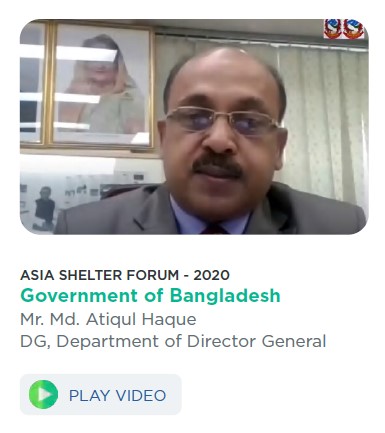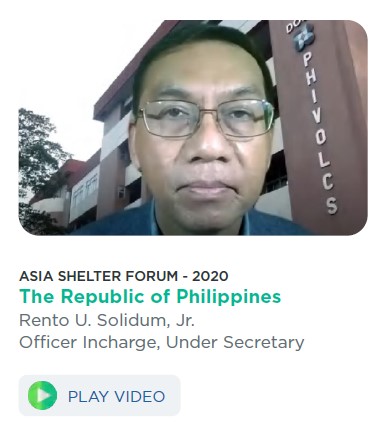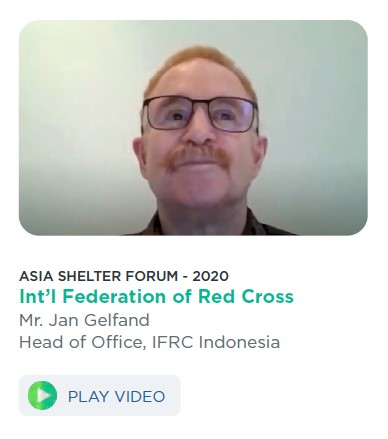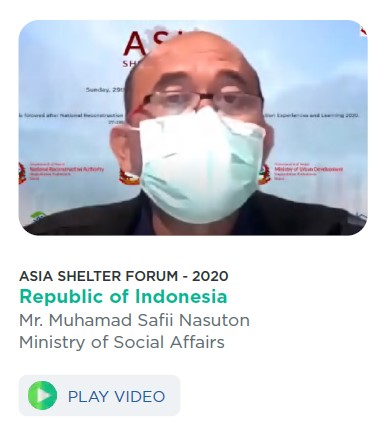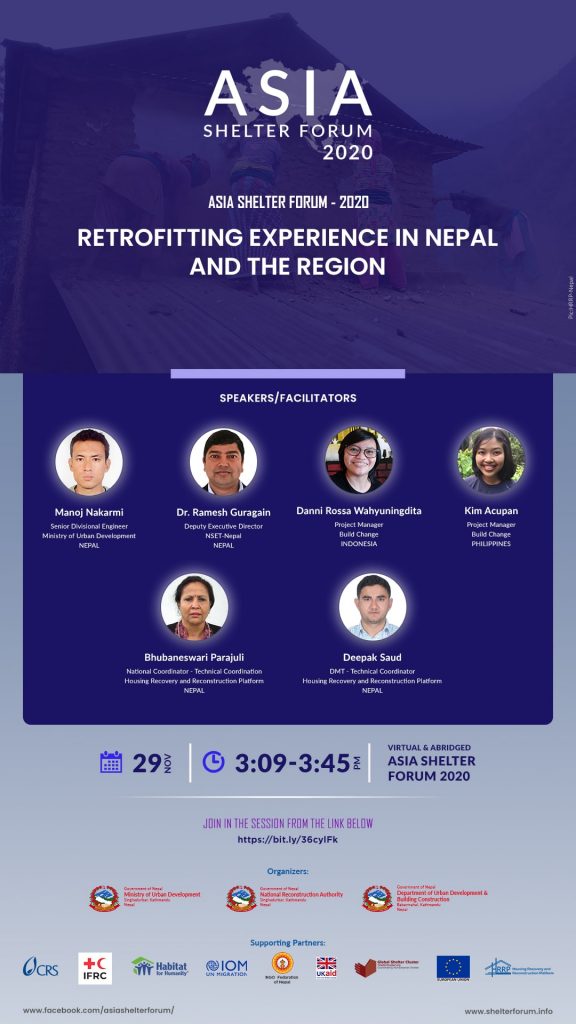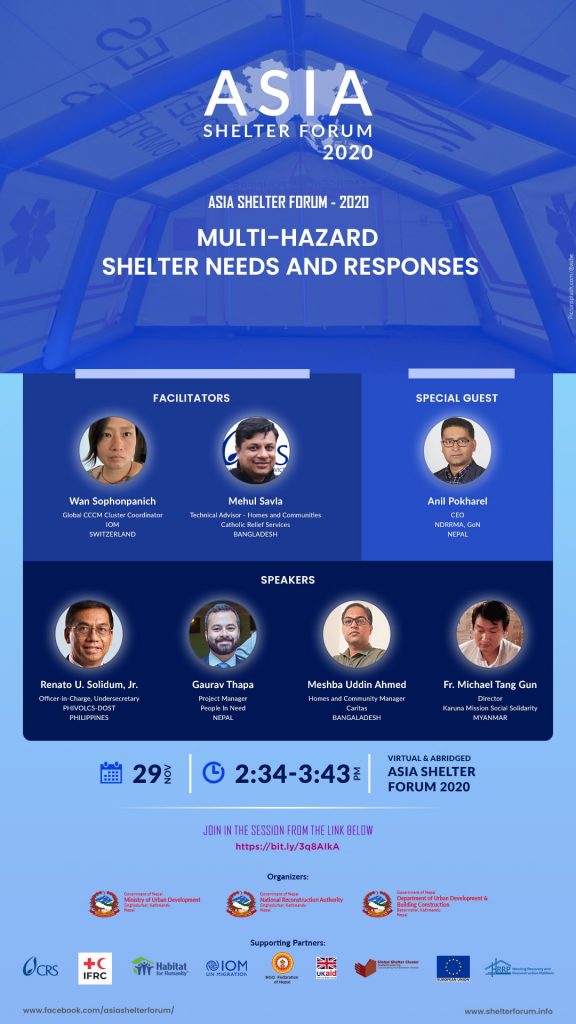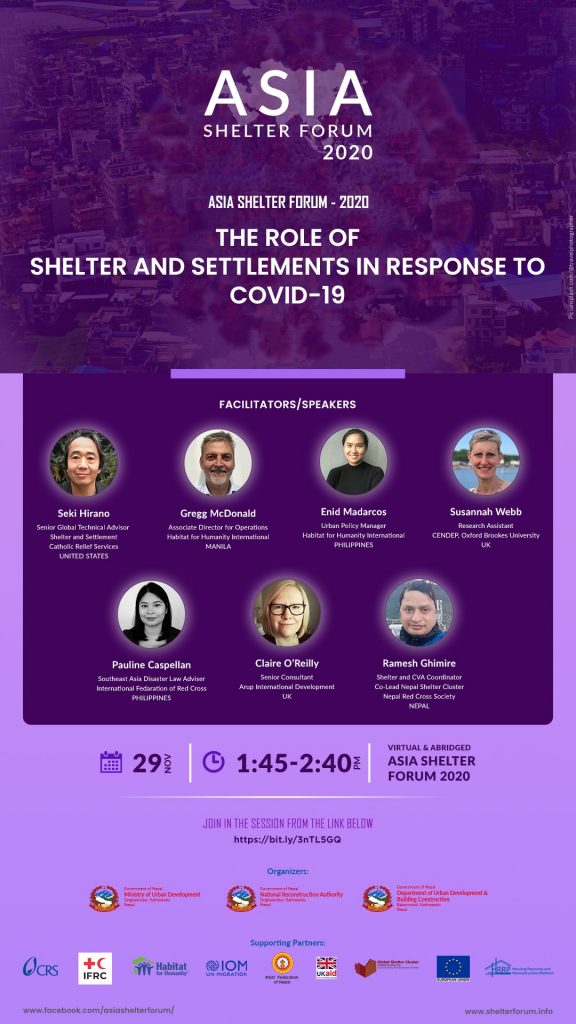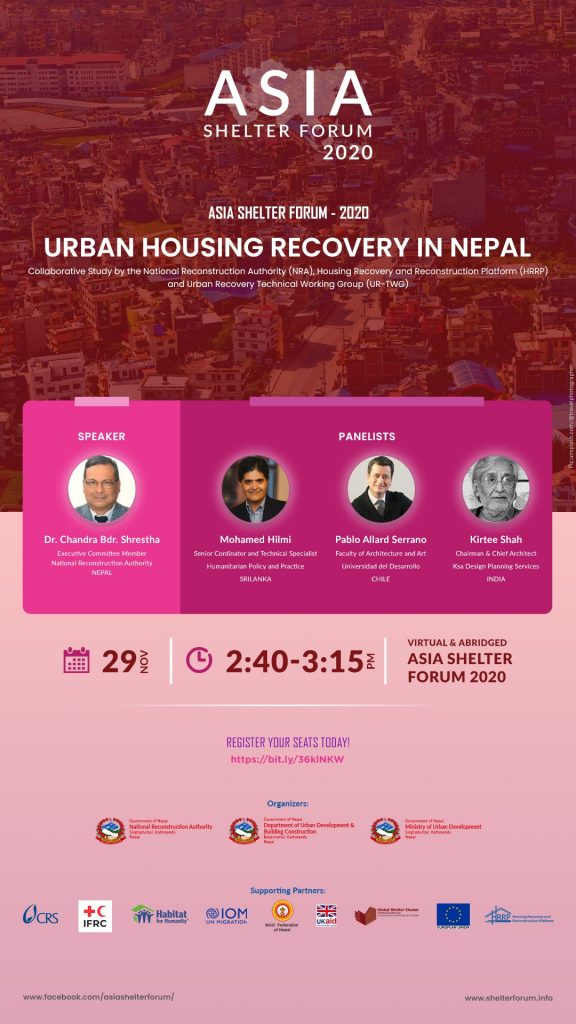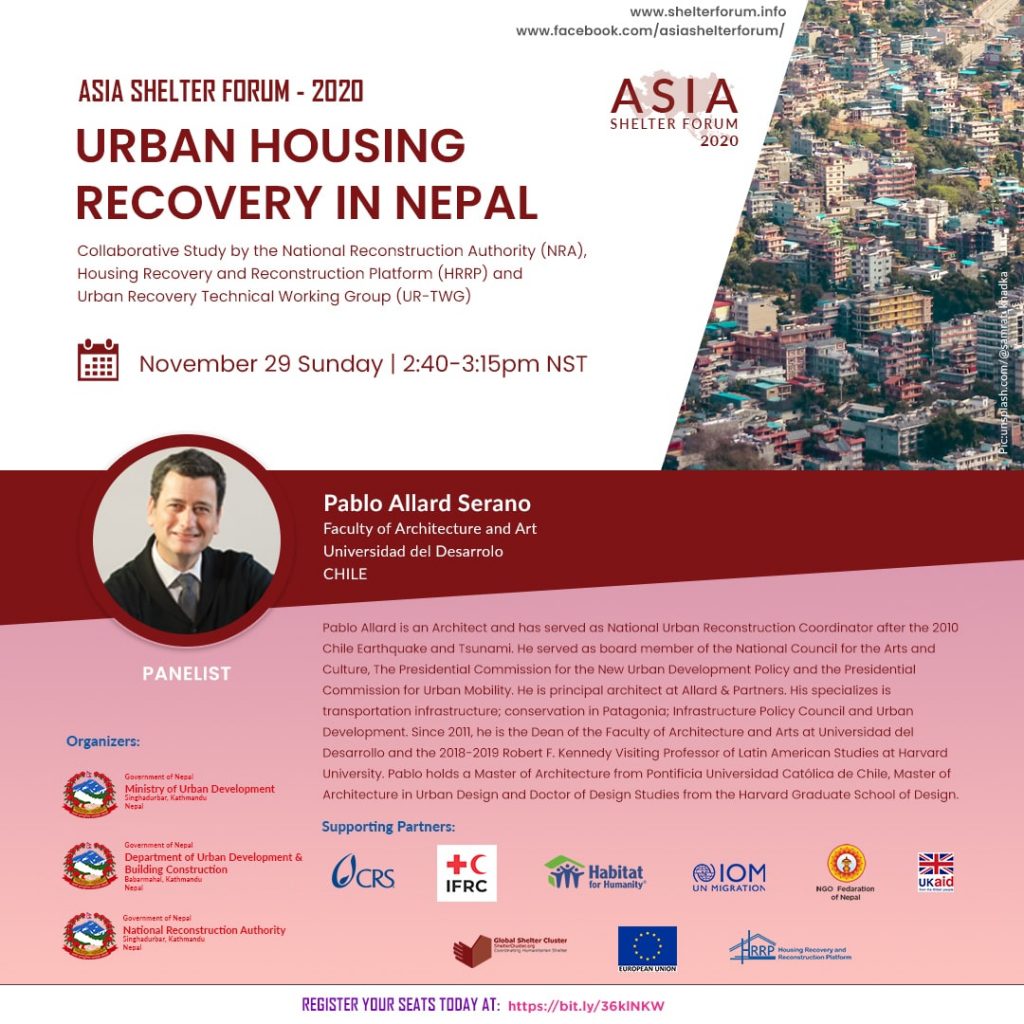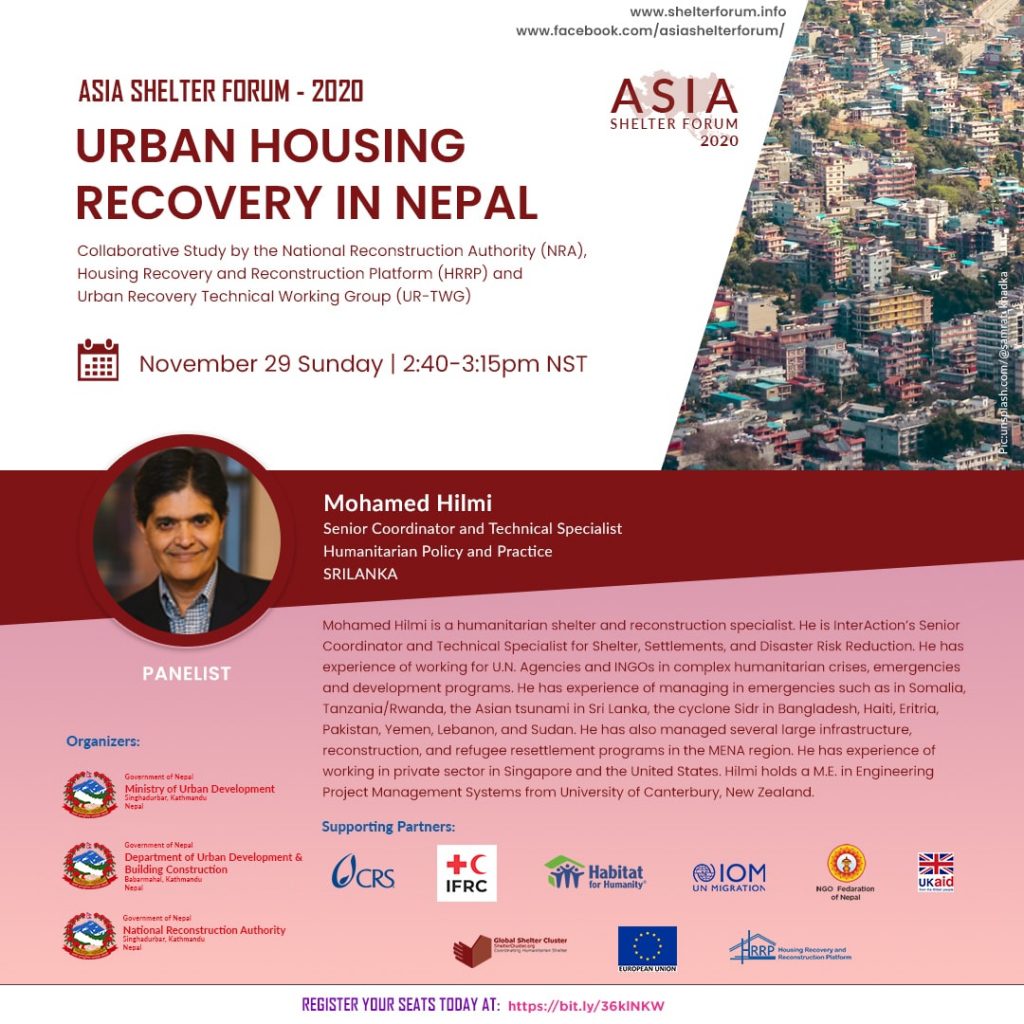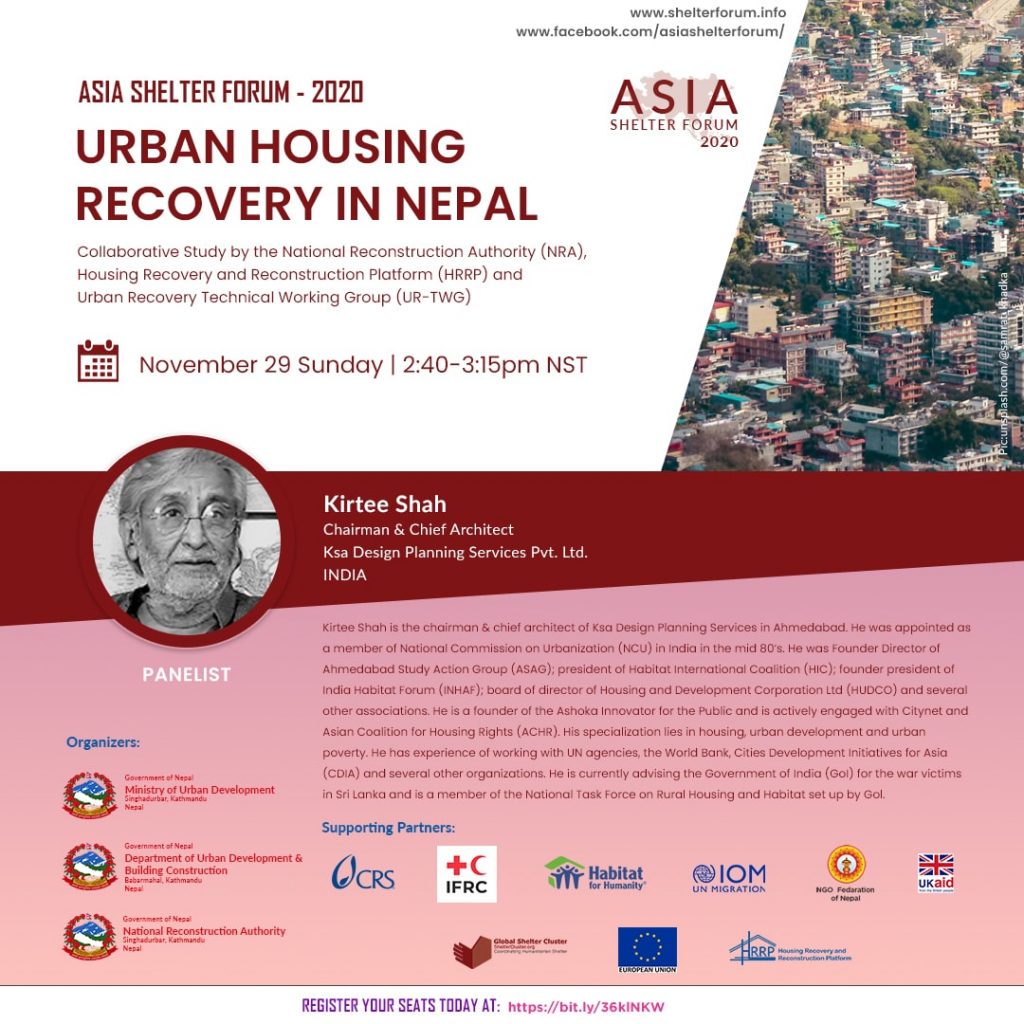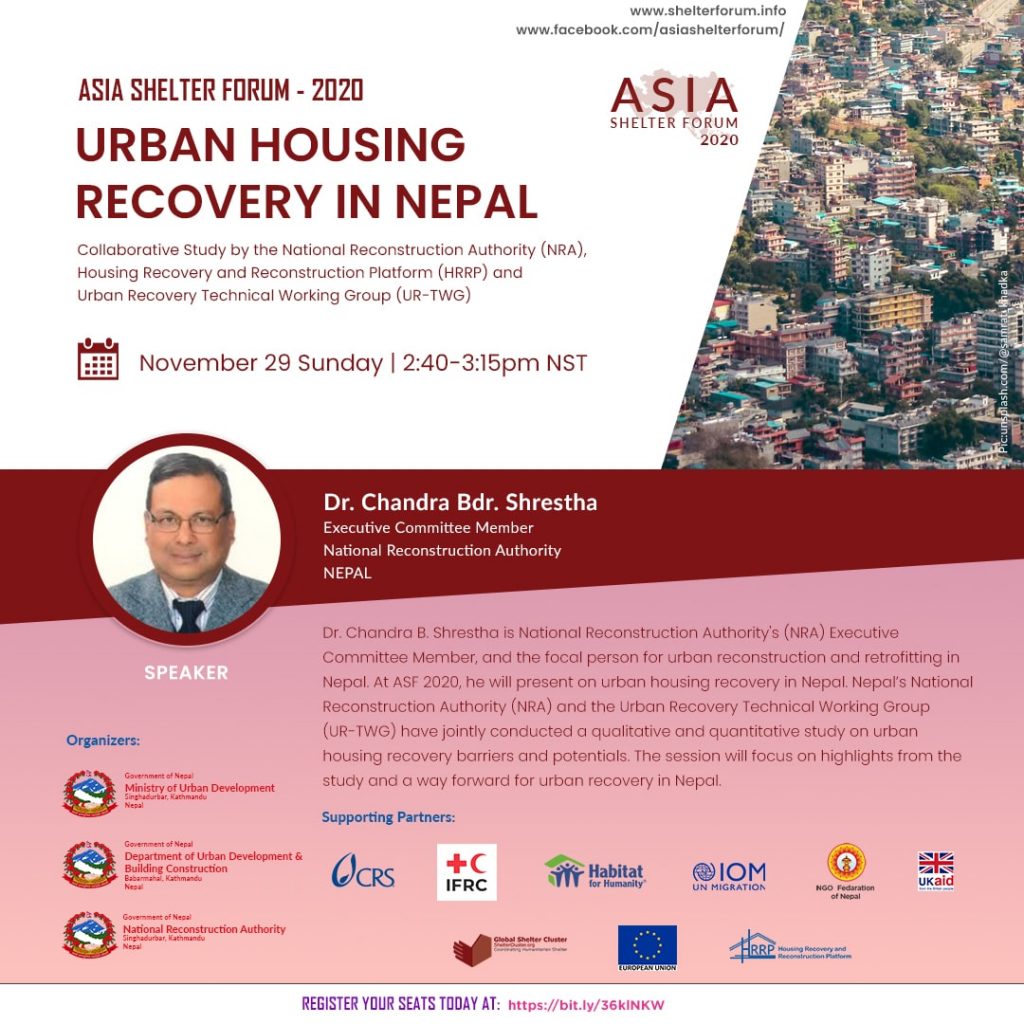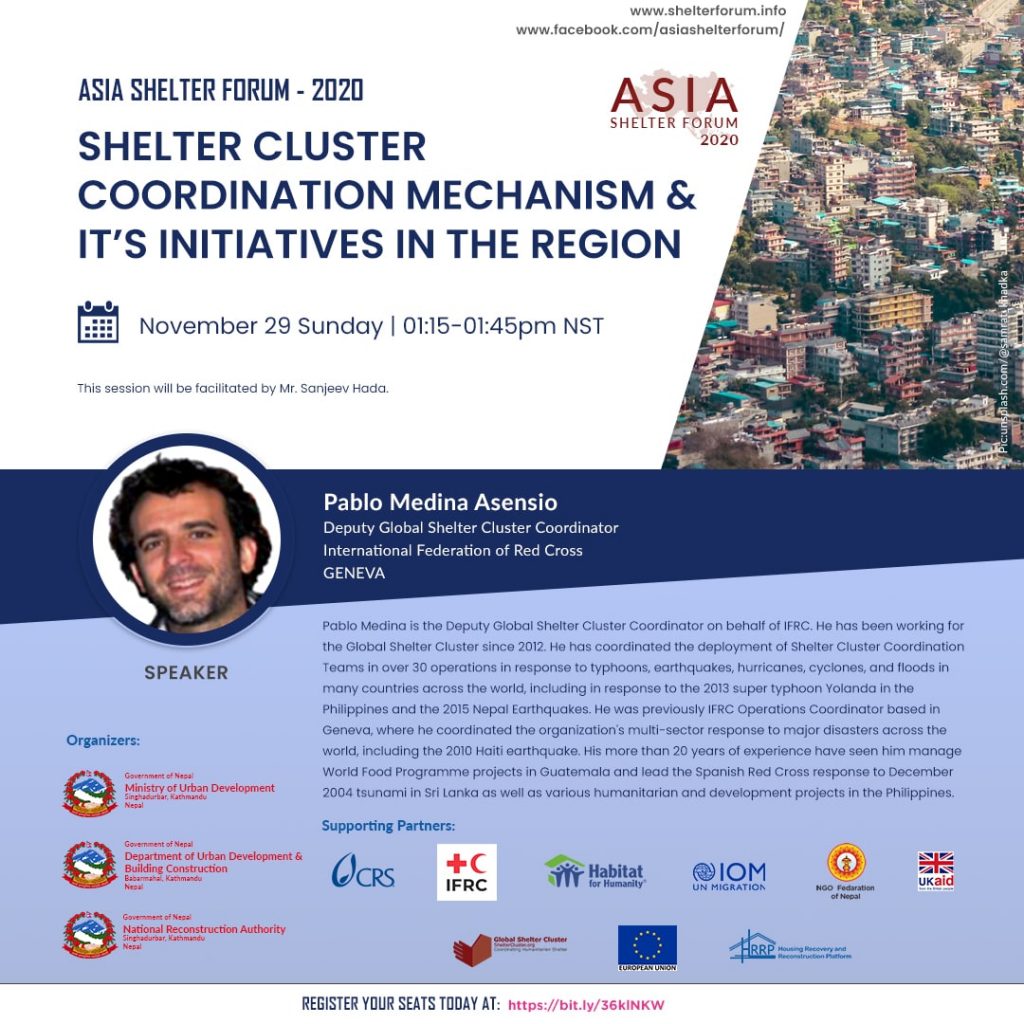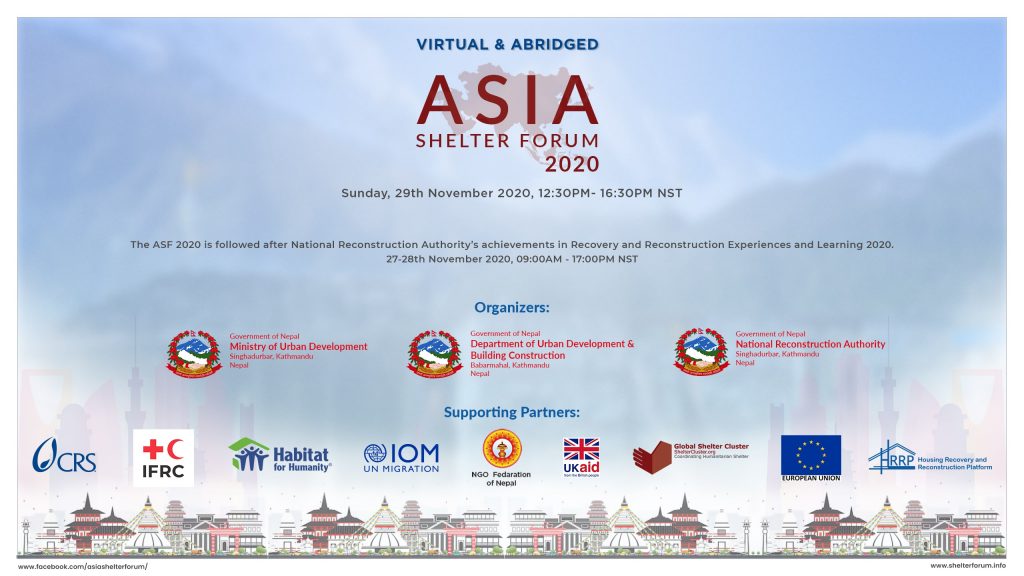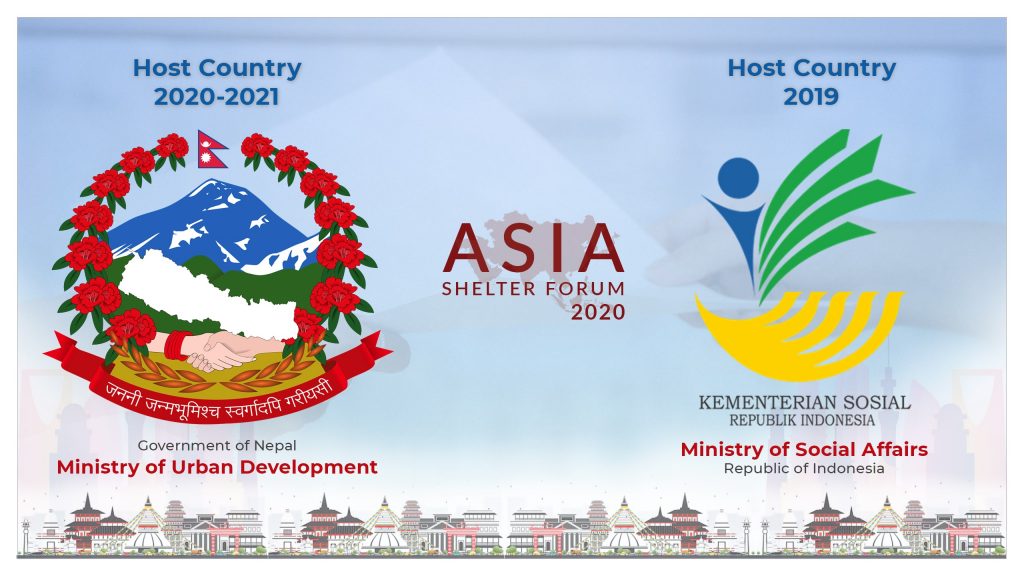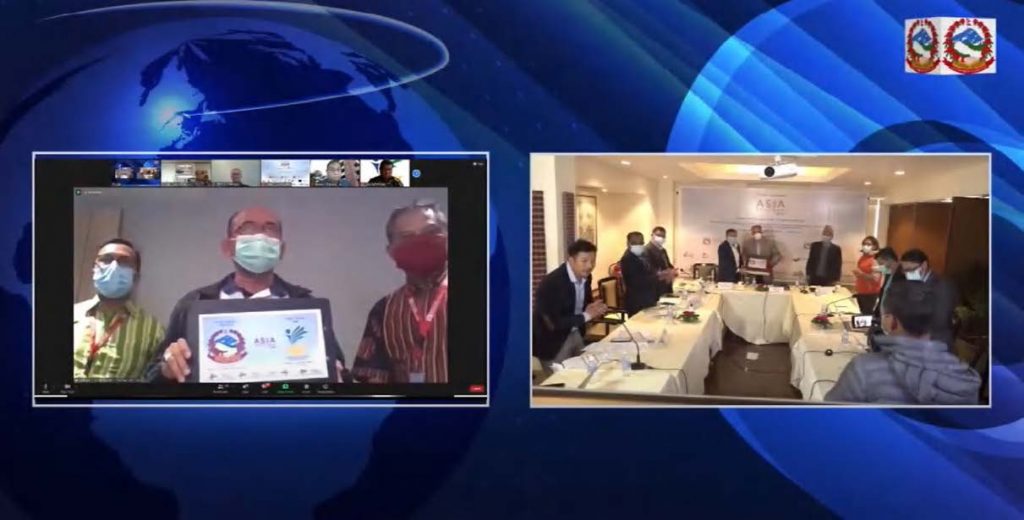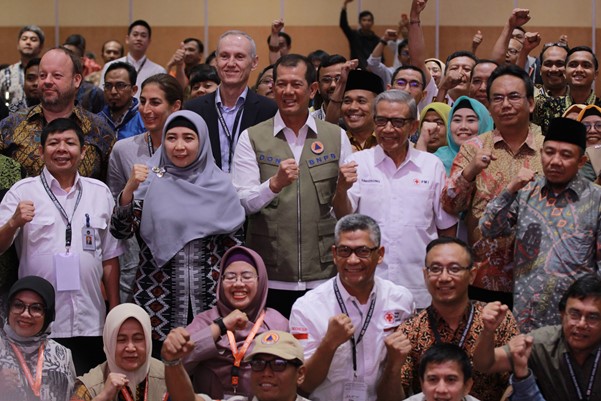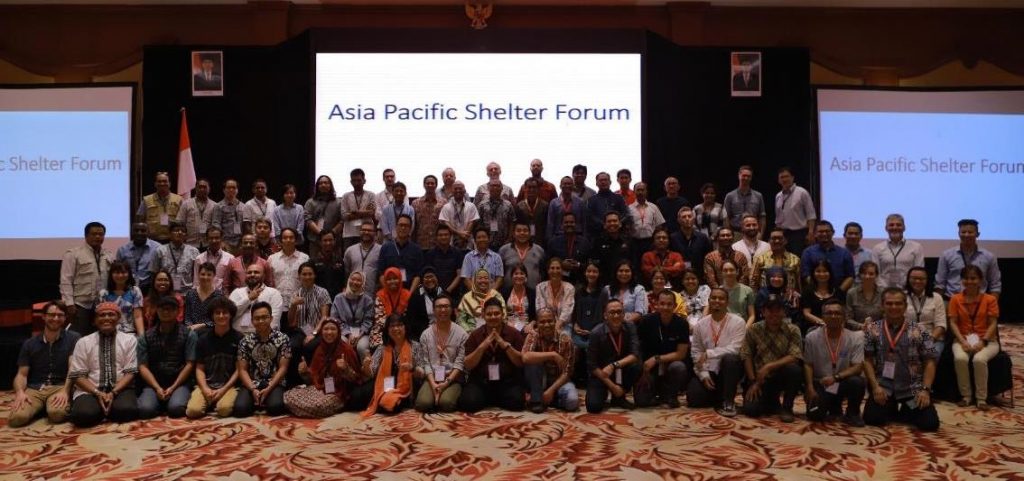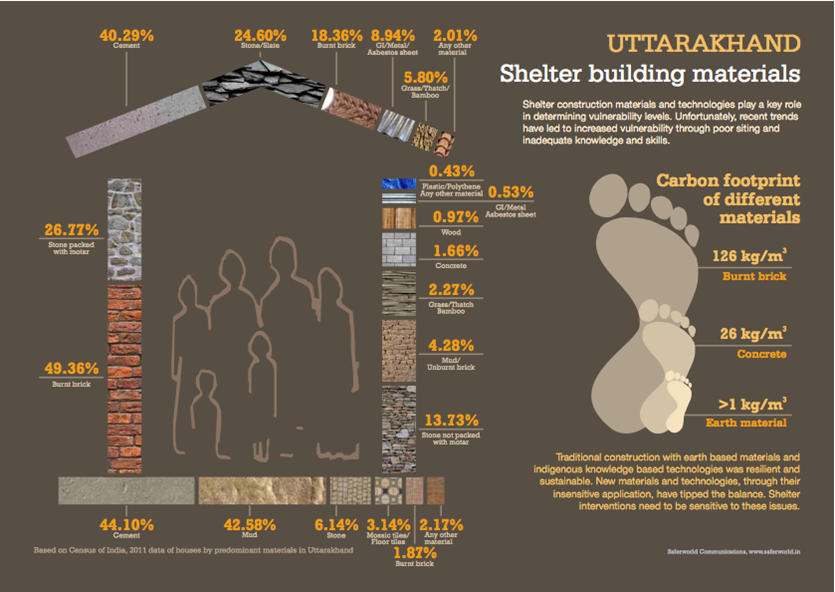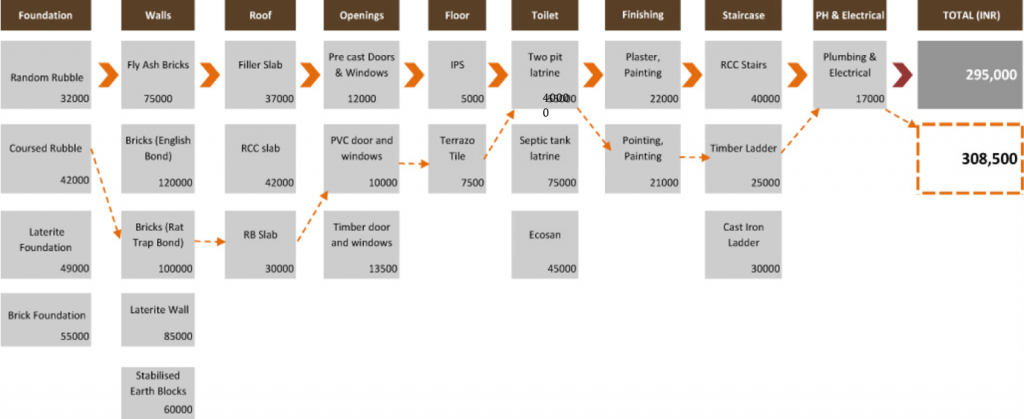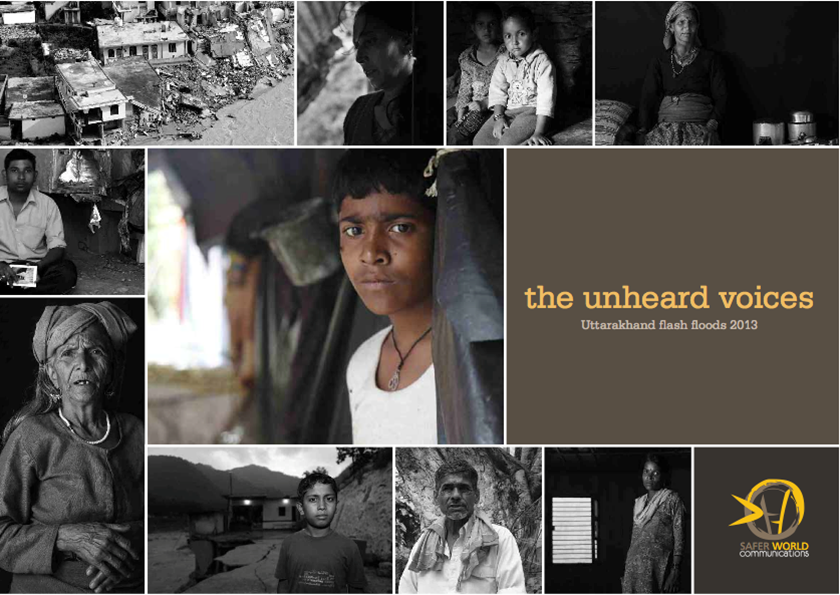Asia Shelter Forum is a forum of practitioners that allows sharing of experiences and learnings across the Asia-Pacific thereby fostering an environment to support and collaborate. Due to COVID-19 related restrictions, ASF 2020 was planned virtually as a half day workshop in November 2020 to be followed by an extended event in April 2021. The Virtual and Abridged Asia Shelter Forum 2020 provided a great platform to share best practices, lessons learnt, innovations, and other priority topics for the governments from Asia-Pacific as well as donor and regional, national and international humanitarian actors, academic institutions, and civil society.
This Asia Shelter Forum aims at creating a platform that builds professional connections and understanding of best practices in shelter and settlements programming in the Asia Pacific Region. The forum was started by the shelter practitioners in 2015 as the shelter meet for practitioners in Bangkok, followed by 2018 in Bangkok and 2019 in Indonesia. The main objective of the forum is to bring the shelter and settlement practitioners together to create safe space to share experiences and learn from each other. The past forum activities had proven well to engage the participants and strengthen the capacity of the practitioners to explore more technical solutions to serve the community we work. Similarly, from the past forum we have seen Government leading the forum and every year more and more governments from the region are coming together to facilitate the discussion among the practitioners.
The ASF 2020 was successfully hosted by MoUD-Nepal, NRA and DUDBC and supported by the HRRP and the organizing committee members namely CRS, IFRC, GSC, Habitat for Humanity, IOM, EU, and NGO Federation of Nepal as the major contributors for Asia Shelter Forum in Nepal. The Forum explored best practices and shelter approaches and initiatives that are community-driven, urban focused, retrofitting oriented, considerate of the multi-hazard risk and appropriate shelter needs and even more contextual in the face of COVID-19.
On 29 November 2020, ASF 2020 hosted more than 300 participants from around the world in a hybrid setting consisting of virtual participants (Zoom and Facebook) together with in-person meeting participants following COVID-19 safe protocols. Er. Mani Ram Gelal, Director General, DUDBC Nepal welcomed the participants and the dignitaries which was followed by remarks from the following four regional government dignitaries highlighting the emerging needs of the shelter across Asia Pacific Region.
- Mr. Md. Atiqul Haque, Department of Director General, People’s Republic of Bangladesh
- Rento U. Solidum Jr., Officer In-charge, Under Secretary, The Republic of Philippines
- Mr. Jen Galfand, IFRC, Head of Office, Indonesia
- Mr. Muhamad Safii Nasuton, Director, Ministry of Social Affairs, The Republic of Indonesia
All statements from dignitaries stressed the need to leverage resources from the government to strengthen shelter management and establish stronger institutional mechanisms for effective shelter response. There were five sessions
in the event:
- Shelter Cluster Coordination Mechanism and its initiatives in the region
- The Role of Shelter & Settlements in Response to COVID-19
- Urban Housing Recovery in Nepal
- Nepal Retrofitting & Regional Experiences
- Multi-Hazard Shelter Needs and Response
In the first session, an update on the global shelter cluster mechanism was provided. The role of GSC for coordination, response, and capacity building of different government and non-government organizations for humanitarian assistance was made clear among the participants. Various ongoing initiatives of its working groups with brief updates from Construction standards, inclusion of persons with disabilities, promoting shelter projects, settlement approaches in urban settings were highlighted. Participants also understood that GSC provides in-country and remote support to the country level clusters on the need basis. Second session proposed four emerging shelter issues to be addressed in the context of COVID-19. Linking health and living conditions was the first emerging shelter issue identified, where the speaker stressed on the need for adequate housing facilities for overall well-being of humans. Importance of adequate shelter was also discussed to prevent the spread of the virus that causes COVID-19. Eviction was the third emerging shelter issue. Regular tracking of eviction data and monitoring is helpful to figure out the underlying cause of evictions and homelessness. Regular tracking and analysis of eviction data also prevent eviction of underprivileged communities, and targeted groups like health workers/frontline workers in times of outbreak of infectious diseases. Economic Recovery should be mainstreamed in shelter programs to improve income of people and sustain their livelihood through income generation employment opportunities.
Third session offered participants to gain insights from experiences and learning on urban recovery and housing shared by speakers and panelists from India, Chile, Nepal and Srilanka. The speaker from Nepal compared the rural and urban reconstruction and stressed on slow urban recovery. Findings from combined study (qualitative & quantitative) revealed housing finance, financial process and policy, and land etc. has made urban housing recovery complex. The panelist from Chile summarized various challenges dealt in the post-disaster phase; houses need estimation and setting eligibility criteria for government support, relocating displaced from temporary camps, and building common indicators for urban recovery. The panelist argued that public and private intervention requires holistic urban resilience and regeneration. Incorporation of risk reduction approaches and adjustment in policy and legislation based on empirical data is needed to swift the recovery process. People centered approach for recovery and reconstruction was emphasized through the panelist from India. The success of recovery and reconstruction should be examined with the lens of social capital to get overall well-being of people. The speaker representing the Urban Settlement Working Group proposed that threats from disaster at current and in future situations should be analyzed and embedded into contemporary housing practices. The link between planning and budgeting decisions for safe and affordable housing need to be strengthened.
Fourth session covered experience sharing of retrofitting practitioners from Asia Pacific region; Nepal, Bhutan, Pakistan, Bangladesh, Indonesia, and Philippines. Nepal endorsed retrofitting initiatives effectively post-earthquake 2015 to control the haphazard building practice. Both hardware and software activities for retrofitting have been implemented by governmental and nongovernmental organizations. Those activities include retrofitting of school
building, governmental building, capacity building of stakeholders and public awareness raising. In Pakistan, retrofitting curricula were developed, engineers and mason were trained, and provided on the job training to mason. Similarly, in Bhutan, guidelines for assessment and retrofitting were developed, public and private buildings were assessed, engineers and mason were trained, and onthe-job training for mason was provided. In Bangladesh, engineers and masons were trained and after that, the local organizations developed and implemented retrofitting designs. The importance of physical demonstration to help people to understand retrofitting. Technical complexity and limited provision for retrofitting in building code and generally low confidence among the technical professionals were some of the major challenges that need to be overcome from retrofitting issues. Common housing typologies in Indonesia are unreinforced masonry, confined masonry, timber-framed on stilts/over masonry skirt base etc.. Technical defects in such housing typology make the retrofitting process complicated.
The Homeowner Retrofitting Program was implemented in the Philippines to strengthen the housing structures. By providing homeowners with access to financial resources and creation of market-demand, program implementation becomes easier.
Fifth session underlined the importance of integrated assessment of multiple hazards for effective shelter management. Philippines’s Geo-Risk Philippines initiatives were shared. This initiative has two platforms: Physical and Governance platforms. In the physical platform, tools are developed for data integration, management, analysis, and assessment of information and in the governance platform, stakeholders can collaborate to share optimum use of the information necessary for risk governance. Different platforms under GeoRiskPH are GeoMapper, GeoAnalytics, and HazardHunterPH. The GeoMapper allows collecting field and off-line surveys. The GeoAnalytics application is designed for visualization and analytics purposes. The HazardhunterPH offers 24/7 hazard assessment services. Major achievement and learning of the Durable SolutionII project implemented in Nepal through the funding of UKAID was presented, funded by UKAID. The project has four core thematic areas for project implementation: implementation & coordination, geo-hazard assessment, policy development support, and resilience building. From Bangladesh, Caritas Bangladesh presented learning and achievement on resilient and climate Smart Design and response through a community-led approach project. Community engagement in the construction designing phase was stressed to ensure sustainability and maintain social cohesion. Discussion on different technical solutions for low housing such as strong resilient design, inclusive local practices and culture were made. The framework of the community-led settlement project implemented by KMSS, Myanmar was presented which has social, environmental,
and economic dimensions for project intervention.
Mr. Marc D’ Silva, Regional Director, CRS bridged Asia Shelter Forum 2020 & 21. The Asia Shelter Forum reflects the importance of government leadership to bring CBOs and I/NGOs together to share, reflect and identify the most appropriate housing solutions, especially for the most vulnerable in our societies. Key ASF working groups came together on areas of urban issues, retrofitting, COVID-19 settlement response, and multi-hazard response. He clarified that the outcomes of these working groups will form the basis of the ASF 2021. He encouraged active participation in one or more of the working groups, so that the key points for scaling next year and beyond.
Mr. Chandra Bahadur Shrestha shared a presentation to invite participants to ICNR 2021. ICNR will be hosted from 23 April 2021 to 25 April 2021, and the 26th will be ASF. He requested all the participants to block 4 days for shelter week. Participants are expected from across the globe, especially disaster-prone countries. international, national, invited guests, and high-level dignitaries will be invited based on the situation. There is a higher possibility that the conference will as well be organized in a hybrid model; physical and virtual.
Representatives from key organizations working in the disaster and shelter recovery sector marked their presence in ASF. Feedback collected via zoom & feedback indicated that participants were raised more questions on shelter response to disasters that are common across the Asia region. Need of multisectoral collaboration for raising awareness at ground level is best understood by participants and they also recognized the importance of designing effective plans for recovery of disaster affected populations.
The Chief Guest, Er. Sushil Gyewali, Chief Executive Officer, NRA, and Er. Surendra Mohan Shrestha, Joint Secretary, MoUD-Nepal provided a solid overview of the forum and briefly outlined deliberations of each session. Their closing remarks reiterated Nepal’s commitment for continued support in such regional collaboration and showed dedication for holistic development that enriched best ideas of shelter allocation. They also made clear that shelter is multi-disciplinary efforts and strong commitment and collaboration from all the sectors; governmental, non-governmental, and private are required for better shelter and its emergency response.
Handover from Indonesia to Nepal
